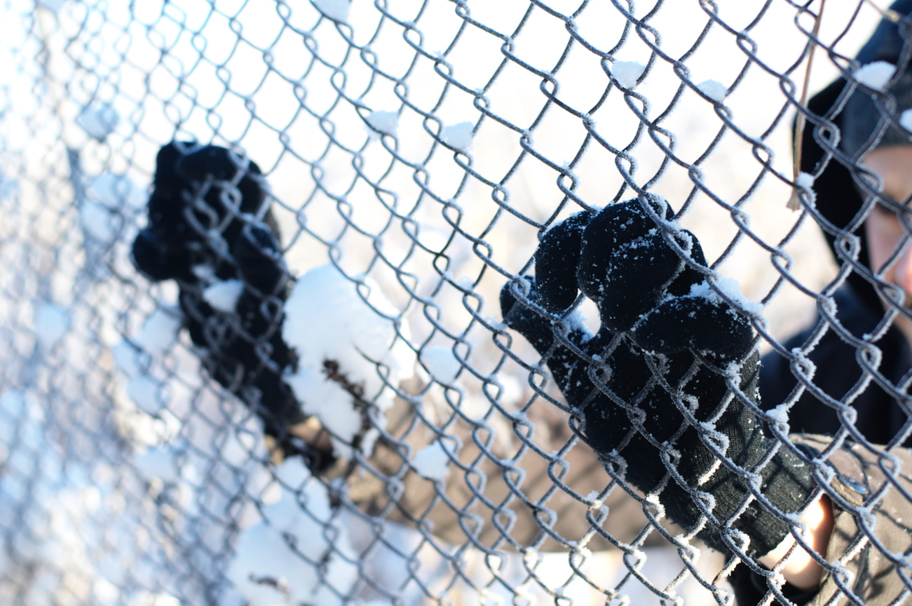Deputy Chief, Secretary-General Jan Eliasson, 14 October 2015 --
The following is taken from the work of the 2015 Deputy Chief, Secretary-General of the UN - we include it still as the same issues are being grappled with.
The world’s ability to respond to migration and refugee movement
is “being tested as never before,”
the United Nations deputy chief said speaking at the Global Forum on Migration and Development taking place in Istanbul, Turkey, while recalling some key principles underscored by the UN to address this global challenge.
“We are all familiar with the scale of our challenge--
240 million international migrants and more than 60 million refugees and forcibly displaced persons,”
Eliasson told representatives of governments, academia, civil society and other groups attending the three-day Forum.
“This challenge is not only a crisis of numbers: It is a crisis of solidarity among responding nations.
It is a crisis that requires mobilization of political will but also viable and forward-looking solutions,” he continued.
Mr. Eliasson said it is fitting that the annual event be organized in Istanbul this year as Turkey has been at the heart of the refugee crisis in the region, as have Lebanon, Jordan, Egypt and Iraq, “paying a high price for the horrific war in Syria which must come to an end.”
“Tackling the root causes of forced or involuntary migration is a key element of the 2030 Agenda for Sustainable Development – goal number 10,” the UN deputy chief noted, referring to the new agreement that was adopted in September by all UN Member States to wipe out poverty, fight inequality and tackle climate change over the next 15 years.
“By improving conditions for a life of dignity, by reducing inequalities, and by promoting peaceful societies, we can make crossing international borders a matter of informed choice, not desperate necessity,” he added.
Mr. Eliasson also recalled that on the margins of the UN General Assembly’s annual debate in New York two weeks ago, UN Secretary-General Ban Ki-moon convened a high-level meeting on migration, refugee movements. Mr. Eliasson also recalled that on the margins of the UN General Assembly’s annual debate in New York two weeks ago, UN Secretary-General Ban Ki-moon convened a high-level meeting on migration, refugee movements.
“Saving lives must be our first priority,” he insisted. “Despite additional search and rescue efforts, we continue to witness people in great numbers dying while seeking to cross borders.”
Seven other key principles he listed included creating a stronger focus on refugee protection, ensuring non-discrimination, increasing preparedness, and sharing responsibilities among nations.
“The Global Forum has successfully built networks and cooperation among the key actors,” he stated. “The Forum and its Member States can now take action to facilitate mobility, reduce migration costs and ensure fair access to benefits.”
He added that the Forum should work closely with the UN System, in particular the Global Migration Group (GMG),
which he said can help integrate migration into national development plans and provide technical assistance to
develop migration-related indicators.
In closing, the Deputy Secretary-General said that for many years, governments have worked to establish clear rules for cross-border trade, finance and services – yet the cross-border movement of human beings remains insufficiently regulated and managed.
“By working together in a cooperative, innovative and constructive way, we can leave behind us the many tragedies we see unfold around the world,” Mr. Eliasson concluded. “By this we can help build a life of opportunity and dignity for all.”
we provide:
neutral
inclusive, and
impartial assessment and intervention.
As global humanitarians working with Professionals for Humanitarian Assistance and Protection, PHAP, Brussels (Dr. Ruebsamen is a member), we also follow the principles of neutrality, inclusiveness and impartiality as we work, regardless of race, creed, or nationality.
As signatories of the International committee of the Red Cross Code of Conduct (always is a member)
we believe aid should be given to every child who is in need, not be used to further a particular political, social, or religious viewpoint.
http://near.ngo/imgtemp/downloadfile/A%20More%20Dignified%20and%20Equitable%20Humanitarian%20System%20-%20Global%20Southern%20NGO%20Network_1463652227.pdf
http://near.ngo/imgtemp/downloadfile/NEAR's%20Commitments%20for%20the%20WHS_1463905705.pdf
The following is taken from the work of the 2015 Deputy Chief, Secretary-General of the UN - we include it still as the same issues are being grappled with.
The world’s ability to respond to migration and refugee movement
is “being tested as never before,”
the United Nations deputy chief said speaking at the Global Forum on Migration and Development taking place in Istanbul, Turkey, while recalling some key principles underscored by the UN to address this global challenge.
“We are all familiar with the scale of our challenge--
240 million international migrants and more than 60 million refugees and forcibly displaced persons,”
Eliasson told representatives of governments, academia, civil society and other groups attending the three-day Forum.
“This challenge is not only a crisis of numbers: It is a crisis of solidarity among responding nations.
It is a crisis that requires mobilization of political will but also viable and forward-looking solutions,” he continued.
Mr. Eliasson said it is fitting that the annual event be organized in Istanbul this year as Turkey has been at the heart of the refugee crisis in the region, as have Lebanon, Jordan, Egypt and Iraq, “paying a high price for the horrific war in Syria which must come to an end.”
“Tackling the root causes of forced or involuntary migration is a key element of the 2030 Agenda for Sustainable Development – goal number 10,” the UN deputy chief noted, referring to the new agreement that was adopted in September by all UN Member States to wipe out poverty, fight inequality and tackle climate change over the next 15 years.
“By improving conditions for a life of dignity, by reducing inequalities, and by promoting peaceful societies, we can make crossing international borders a matter of informed choice, not desperate necessity,” he added.
Mr. Eliasson also recalled that on the margins of the UN General Assembly’s annual debate in New York two weeks ago, UN Secretary-General Ban Ki-moon convened a high-level meeting on migration, refugee movements. Mr. Eliasson also recalled that on the margins of the UN General Assembly’s annual debate in New York two weeks ago, UN Secretary-General Ban Ki-moon convened a high-level meeting on migration, refugee movements.
“Saving lives must be our first priority,” he insisted. “Despite additional search and rescue efforts, we continue to witness people in great numbers dying while seeking to cross borders.”
Seven other key principles he listed included creating a stronger focus on refugee protection, ensuring non-discrimination, increasing preparedness, and sharing responsibilities among nations.
“The Global Forum has successfully built networks and cooperation among the key actors,” he stated. “The Forum and its Member States can now take action to facilitate mobility, reduce migration costs and ensure fair access to benefits.”
He added that the Forum should work closely with the UN System, in particular the Global Migration Group (GMG),
which he said can help integrate migration into national development plans and provide technical assistance to
develop migration-related indicators.
In closing, the Deputy Secretary-General said that for many years, governments have worked to establish clear rules for cross-border trade, finance and services – yet the cross-border movement of human beings remains insufficiently regulated and managed.
“By working together in a cooperative, innovative and constructive way, we can leave behind us the many tragedies we see unfold around the world,” Mr. Eliasson concluded. “By this we can help build a life of opportunity and dignity for all.”
we provide:
neutral
inclusive, and
impartial assessment and intervention.
As global humanitarians working with Professionals for Humanitarian Assistance and Protection, PHAP, Brussels (Dr. Ruebsamen is a member), we also follow the principles of neutrality, inclusiveness and impartiality as we work, regardless of race, creed, or nationality.
As signatories of the International committee of the Red Cross Code of Conduct (always is a member)
we believe aid should be given to every child who is in need, not be used to further a particular political, social, or religious viewpoint.
http://near.ngo/imgtemp/downloadfile/A%20More%20Dignified%20and%20Equitable%20Humanitarian%20System%20-%20Global%20Southern%20NGO%20Network_1463652227.pdf
http://near.ngo/imgtemp/downloadfile/NEAR's%20Commitments%20for%20the%20WHS_1463905705.pdf
The bleakest of winters came to the refugees in 2015 - 2016. There was desperate need for winterization in camps - in tents and makeshift, temporary shelters.
The basic needs of many of the children and families were a priority.
- In northern Iraq's Kurdistan region winter generally begins early, and it did not disappoint, bringing heavy rains, snow and freezing temperatures. For displaced families, and especially for children and infants, warmth was a matter of survival.
- Through the Warm for Winter campaign, UNICEF aimed to protect 1.1 million children from illness, exposure, and other preventable winter threats.
- The campaign was to be one of the largest 'winterization' efforts in UNICEF's history.
Amazing organizations like MedAir led the way in responsiveness to emerging contextual needs, such as the effects of natural disaster, the effects of winterization and scarcity of food on large masses of migrating children and families in Nepal, Europe, and the Middle Europe.
- We fully support their work as we do with local communities and all humanitarian agencies on the ground:
- such as: World Vision, UN agencies, Mercy Corps, World Food Programme, CARE, Save the Children, Lutheran World Relief, AmRef (flying doctors), One Horizon Africa, etc.
- In the month of January 2016, over 250 refugees drowned attempting to reach Turkey by water - their bodies strewn on the rocky beaches - double the number who died attempting the same journey by sea just one year ago.
- more recent, cumulative statistics for Winter 2015 - 2016 are beyond comprehension - with half of those who died children.
In the case of EMERGENCIES we are in agreement with policies such as MedAir's:
we do everything we can to protect, save lives, remain with people to help them recover in immediate days, stabilize them emotionally and physically from crisis with dignity, and maintain the order conducive to doing that.
This was not our first experience assisting with winterization efforts. Our Country Directors are working alongside other aid organizations, communities in refugee camps, schools, at borders, and in the chaos of the genocide in the streets in Burundi that the world is largely ignoring.
At this time, our Country Directors are employed with multiple Aid agencies, such as Save the Children Jordan and UN Women.
They also take on short term additional projects, determined to enhance their training, expertise, and experience, committed to being part of an integrative positive impact wherever they are working in the world. Others volunteer their services, training others in gender-based violence prevention and assisting them in applying for funding.

